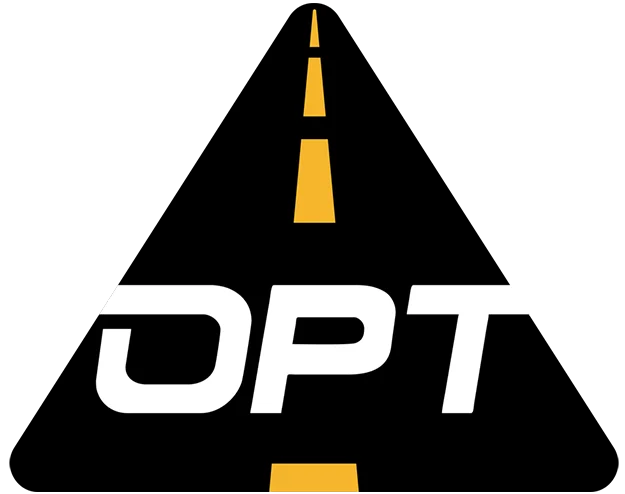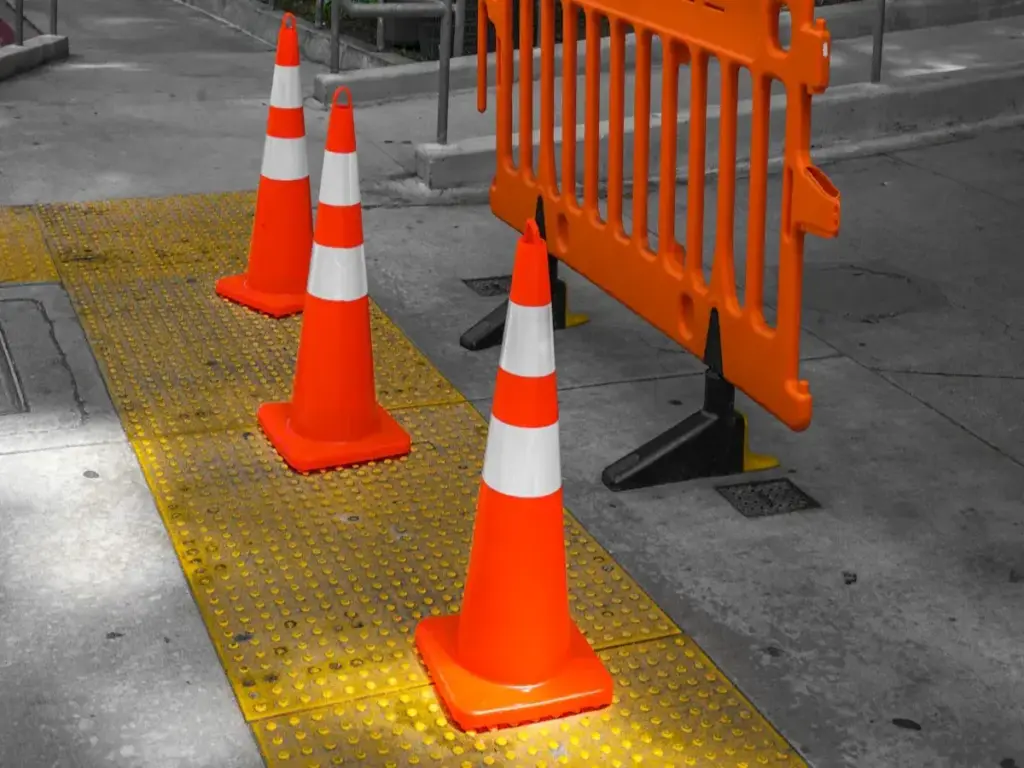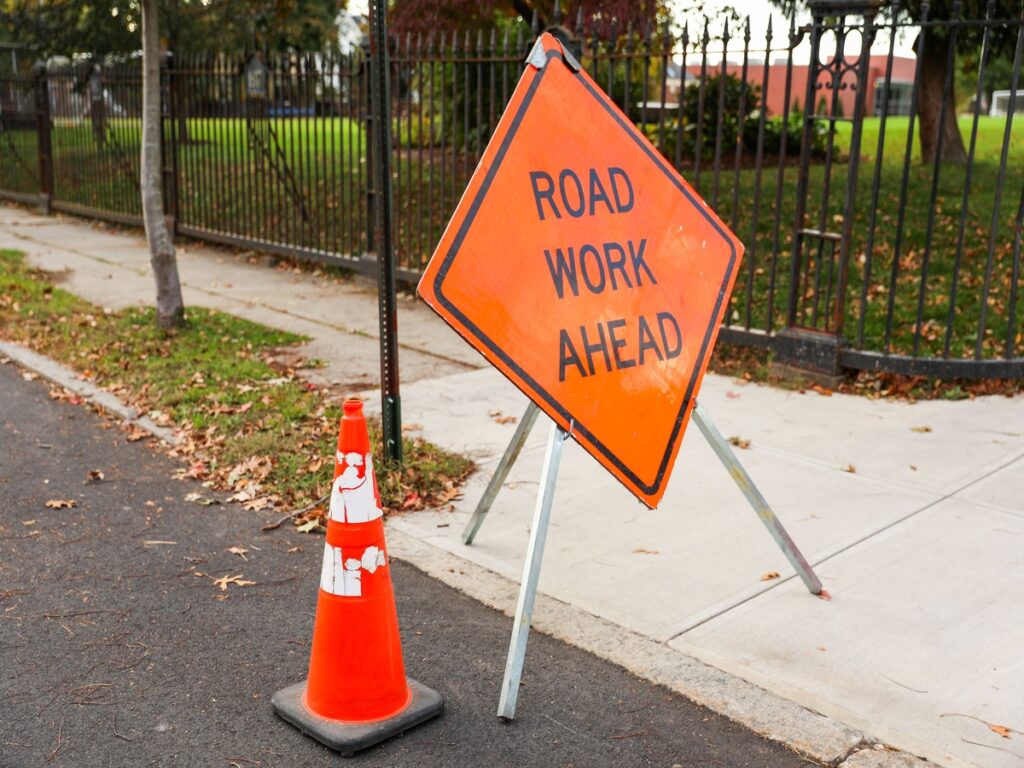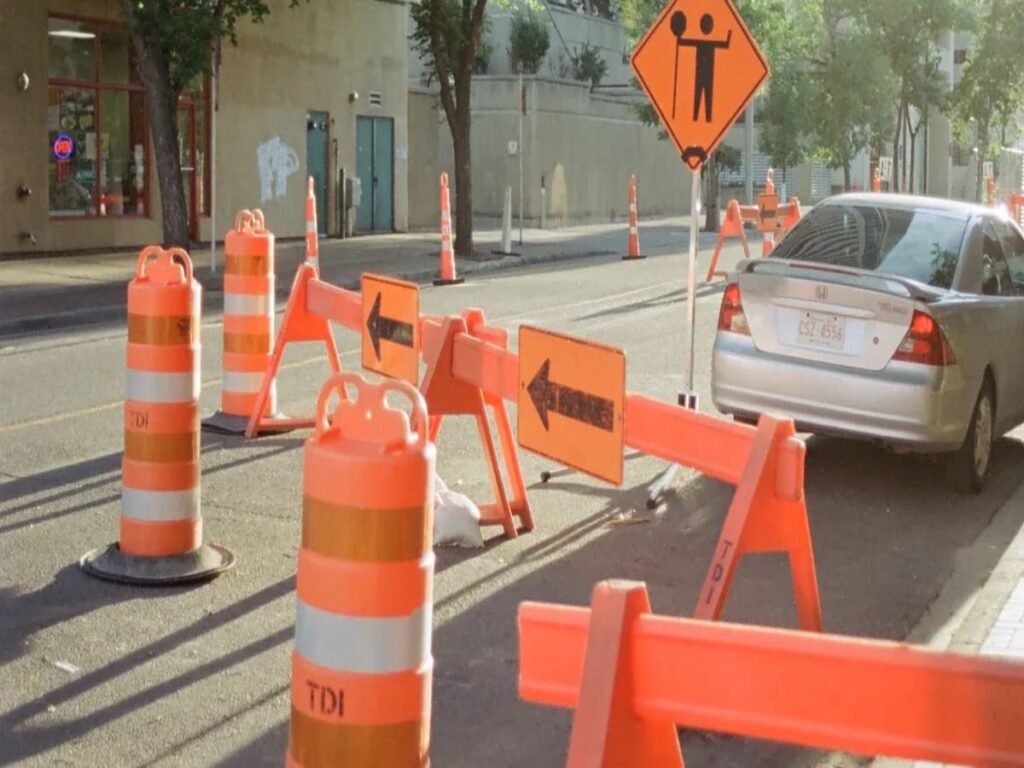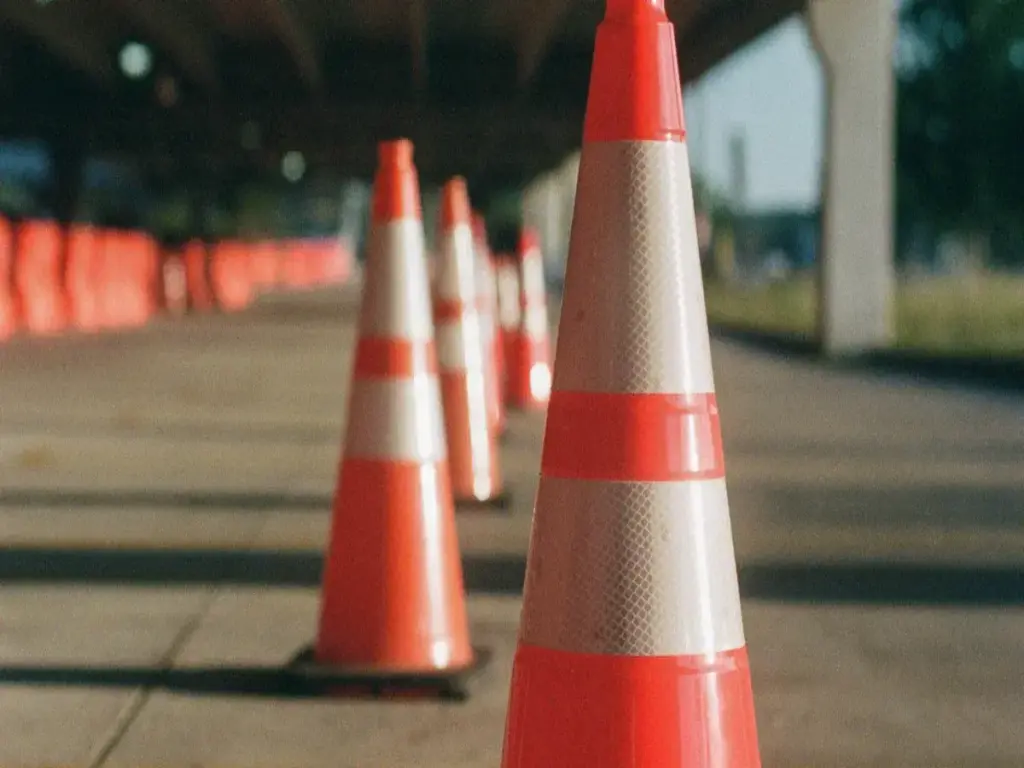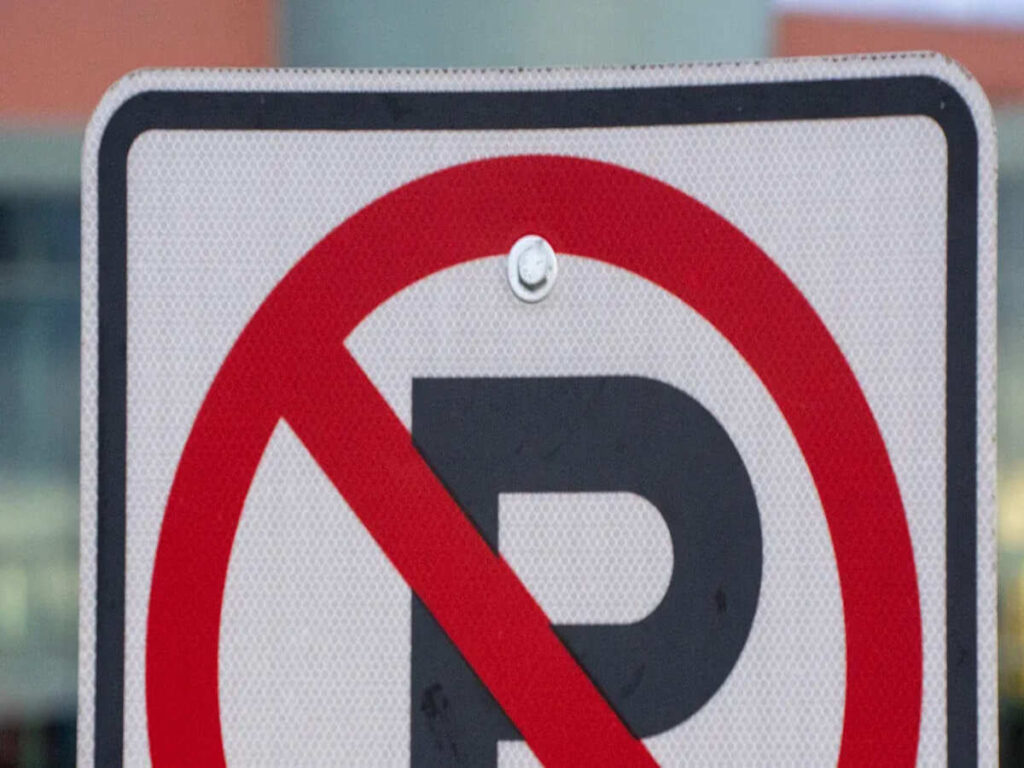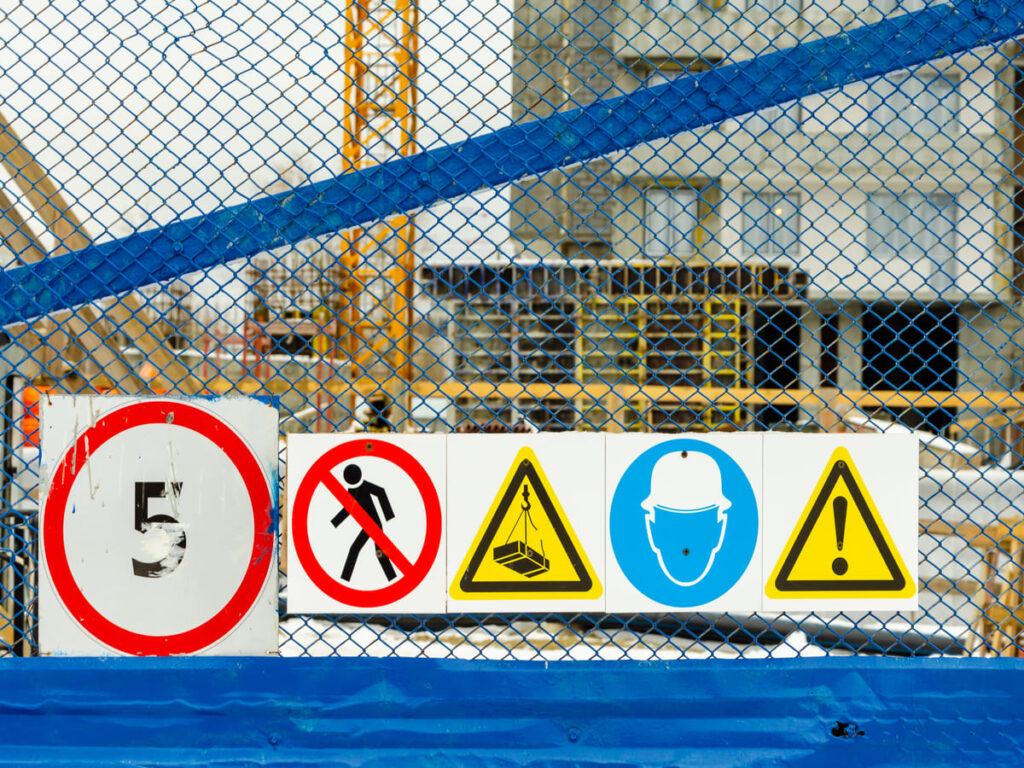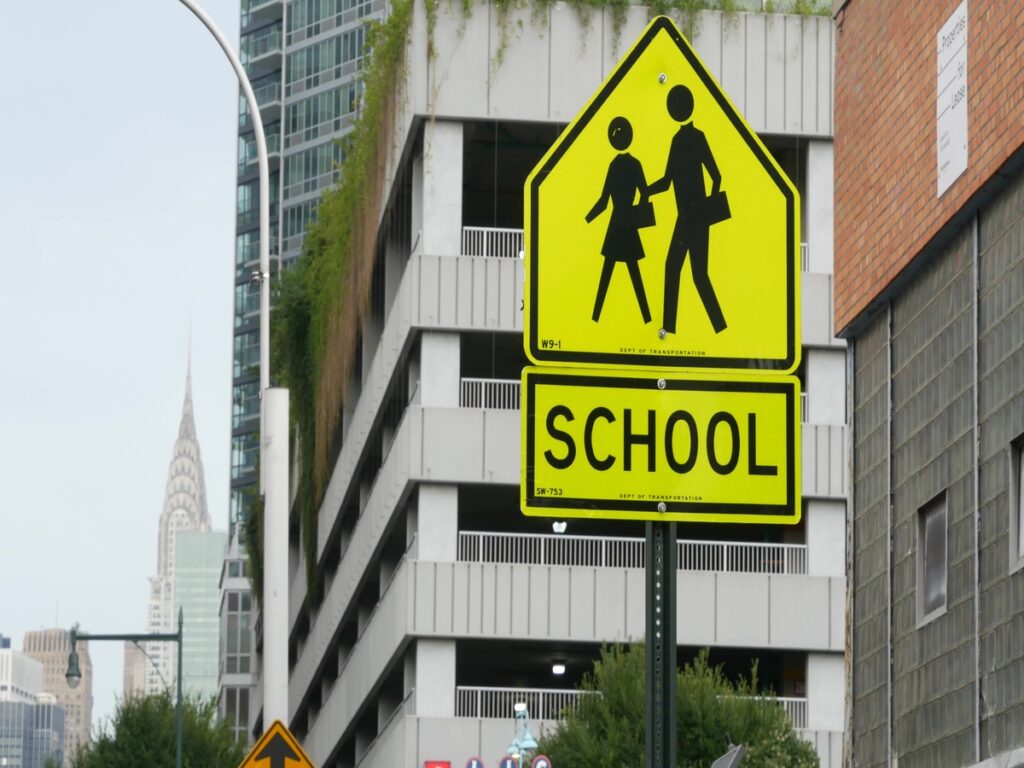
La segnaletica stradale è fondamentale per mantenere la sicurezza nelle zone scolastiche e nelle aree pedonali. Aiutano gli automobilisti e proteggono i bambini, genitori, e pedoni dagli incidenti. Studi recenti rivelano alcune statistiche preoccupanti. Ad esempio:
- 1 In 4 la morte di pedoni infantili avviene tra 3 PM e 7 PM.
- 80% degli studenti attraversano le strade in modo non sicuro, con 44% indossare le cuffie e 31% mandare SMS.
- Soltanto 4 fuori da 10 le zone scolastiche hanno 20 Limiti di velocità in mph pubblicati.
Segnali stradali efficaci, come i segnali di limite di velocità, può ridurre la velocità del veicolo di 12 km/h e diminuire gli infortuni in caso di incidente 45%. Per migliorare la sicurezza, è fondamentale acquistare la segnaletica stradale per le scuole e le aree pedonali.
OPTRAFFICO Fornisce alta qualità, durevole Segni di traffico in vendita progettato per migliorare la sicurezza nelle zone scolastiche e nelle aree pedonali. La segnaletica di sicurezza OPTRAFFIC in vendita è progettata per soddisfare le normative locali e garantire visibilità, contribuendo a proteggere gli utenti della strada più vulnerabili. Se hai bisogno di segnali di limite di velocità, segnaletica di attraversamento pedonale, o indicatori di divieto di accesso, Ti abbiamo coperto.
Takeaway chiave
- La segnaletica stradale è importante per garantire la sicurezza delle zone scolastiche e dei pedoni. Proteggono i bambini e riducono il rischio di incidenti.
- Controlla le regole locali prima di acquistare i segnali stradali. Scegli colori vivaci e materiali riflettenti in modo che siano facili da vedere.
- Ottieni i segnali stradali chiave come il limite di velocità, passaggio pedonale, e segni di stop. Questi aiutano gli automobilisti e rendono le aree più sicure.
- Utilizza materiali resistenti come l'alluminio per i segnali stradali. Le superfici riflettenti aiutano le persone a vederle meglio, soprattutto di notte.
- Controlla e correggi spesso i segnali stradali per farli funzionare bene. Puliscili e riparali in modo che rimangano puliti e al sicuro.
Considerazioni chiave sull'acquisto della segnaletica stradale per le zone scolastiche
Regole della zona scolastica e seguenti linee guida
Al momento dell'acquisto di segnali stradali per le zone scolastiche, Segui le regole locali. Negli Stati Uniti, IL Manuale sui dispositivi di controllo del traffico uniforme (MUTCD) fornisce regole chiare per la progettazione della segnaletica, misurare, e visibilità. Queste regole mantengono la segnaletica coerente e sicura.
| Aspetto | Requisito |
|---|---|
| Design del segno | Deve seguire le regole MUTCD per la progettazione, visibilità, e manutenzione. |
| Regole sulle dimensioni | I segnali devono corrispondere alle dimensioni richieste in base al traffico e alla velocità. |
| Visibilità | Utilizzare materiali giallo-verdi brillanti e luci lampeggianti per una migliore visibilità. |
Gli studi dimostrano che spesso gli incidenti accadono vicino alle scuole, Soprattutto nelle città. L’aggiunta di funzionalità di sicurezza come semafori e strisce pedonali riduce i rischi per i bambini che vanno a scuola a piedi. Seguendo queste regole, puoi rendere le zone scolastiche più sicure per tutti.
Perché la visibilità e la chiarezza sono importanti
Essere in grado di vedere chiaramente i segnali è molto importante. I conducenti devono notare rapidamente i segnali e comprenderli facilmente. Materiali luminosi come i colori giallo-verde e superfici riflettenti aiutano i segnali a risaltare, anche quando è buio.
Mantieni i bambini al sicuro mentre vanno a scuola con segnali luminosi e segnaletica orizzontale. Questi afferrano i conducenti’ attenzione mentre si avvicinano alle zone scolastiche, mantenere l’area più sicura per tutti.
I segnali lampeggianti delle zone scolastiche possono rallentare i conducenti fino a sette miglia all'ora. Anche i segnali di velocità radar e i fari intelligenti aiutano i conducenti a rimanere vigili, tenere i bambini al sicuro tutto il giorno.
Segnaletica indispensabile per le zone scolastiche
Alcuni segnali di sicurezza sono molto importanti nelle zone scolastiche per guidare i conducenti e proteggere i bambini. Questi includono:
- Segnali di limite di velocità della zona scolastica: Mostra limiti di velocità inferiori durante l'orario scolastico.
- Segnali di attraversamento pedonale: Avvisare i conducenti delle aree in cui i bambini attraversano.
- Segnali di guardia dell'attraversamento scolastico: Aiuta le guardie di attraversamento a gestire il traffico in sicurezza.
- Segnali di stop e segnali di precedenza: Assicurati che le auto si fermino agli incroci e agli incroci.
Le strisce pedonali luminose e la segnaletica incoraggiano conducenti e pedoni ad agire in modo sicuro. Segnali lampeggianti della zona scolastica e Rrfbs (Beacon lampeggianti rapidi rettangolari) Fai fermare i conducenti 96% più spesso e ridurre gli incidenti pedonali 47%.
Scegliere la segnaletica giusta migliora la sicurezza e rispetta le regole nelle zone scolastiche. Quando si acquistano segnali stradali, puntare sulla visibilità, chiarezza, e seguendo le linee guida per mantenere la tua comunità al sicuro.
Segnali stradali per aree di sicurezza pedonale
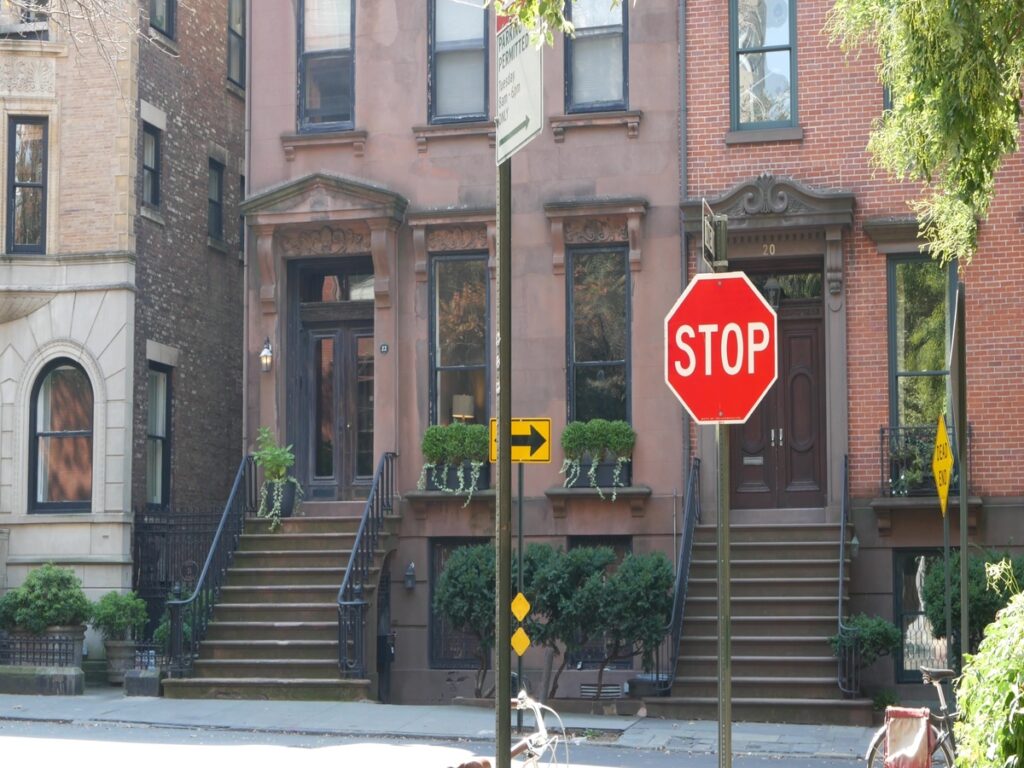
Regole e standard per la sicurezza dei pedoni
Le norme per la sicurezza dei pedoni mirano a prevenire incidenti e salvare vite umane. Queste regole richiedono segnaletica speciale per guidare sia i conducenti che i pedoni. In 2023, Di 7,500 i pedoni sono morti in incidenti stradali. Questo numero è quasi raddoppiato in dieci anni. Ciò dimostra la necessità di misure di sicurezza migliori. I segnali stradali chiari aiutano a sensibilizzare le persone e a far rispettare le regole.
Le norme di sicurezza richiedono segnali stradali visibili nelle aree pedonali trafficate. Per esempio, segnali di attraversamento pedonale e “Parcheggio vietato” i segnali vicino agli angoli riducono i rischi. Segni come “Vietato l'accesso” O “Accesso limitato” impedire alle auto di entrare nelle zone pedonali. L'uso di questi segnali di sicurezza stradale ti mantiene nel rispetto della legge e migliora la sicurezza.
Segnali importanti per la sicurezza dei pedoni
Alcuni segnali stradali sono molto importanti per la sicurezza dei pedoni. Questi segnali guidano il traffico e avvisano i conducenti della presenza di pedoni. Gli esempi includono:
- Segnali di attraversamento pedonale: Dire agli automobilisti di rallentare e di lasciare attraversare i pedoni.
- Nessun segno di parcheggio: Vicino a strisce pedonali, questi segnali mantengono le opinioni chiare per tutti.
- Segnali di attraversamento pedonale: Agli angoli, questi segnali rendono le strisce pedonali più facili da vedere.
- Divieto di accesso o segnaletica di accesso limitato: Impedire alle auto di entrare nelle aree pedonali.
Gli studi dimostrano che questi segnali stradali funzionano bene. I segnali e i coni delle strisce pedonali in alto fanno sì che i conducenti si fermino più spesso. Segni triangolari come “Sfruttamento dei pedoni durante la svolta” ridurre gli incidenti in curva. Questi sono ottimi per i punti rischiosi.
Assicurarsi che i segnali siano visibili ed efficaci
Per garantire la sicurezza dei camminatori, posizionare i segnali giusti in tutti i punti necessari. Pensa alla disposizione delle strade, quanta gente cammina lì, e quanto sono facili i segni da vedere. I segnali in mezzo alle strade funzionano bene per le strisce pedonali. La ricerca mostra che questi segnali fanno fermare i conducenti 13% A 46% più spesso.
I segnali di knockdown aiutano anche a ridurre gli incidenti. A San Francisco, questi segnali di sicurezza impediscono gli incidenti 17.1% A 2.1%. Ciò dimostra quanto siano importanti un buon posizionamento e materiali brillanti. Quando si acquista la segnaletica di sicurezza, scegli quelli con superfici riflettenti e colori vivaci. Questi si distinguono anche quando è buio.
Come scegliere i migliori materiali per la segnaletica stradale
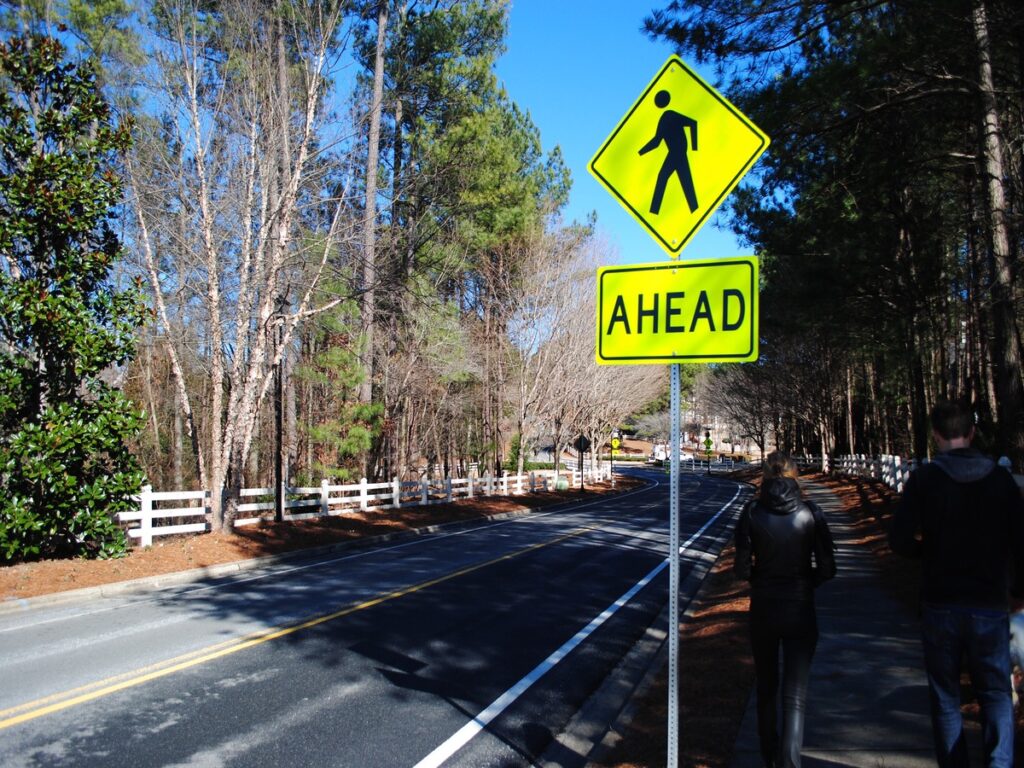
Materiali resistenti per uso esterno
I segnali stradali devono gestire condizioni meteorologiche avverse. Piovere, Calore, e la neve può danneggiare la segnaletica stradale. Scegli materiali che rimangano resistenti e funzionino bene in queste condizioni. L’alluminio è la scelta migliore perché è leggero, forte, e resiste all'acqua e ai graffi. Ottimo anche l'acrilico. Blocca i raggi UV e le sostanze chimiche, rendendolo adatto a luoghi soleggiati o industriali.
Ecco un semplice sguardo ai materiali di segnaletica più comuni:
| Materiale | Caratteristiche di forza | A prova di tempo? | Vantaggi aggiuntivi |
|---|---|---|---|
| Alluminio | Leggero, forte, antigraffio, resistente all'acqua | SÌ | Economico, riciclabile |
| Acrilico | Difficile, resistente all'acqua, Resistente ai raggi UV e agli agenti chimici | SÌ | Nessun abbagliamento, gestisce bene il calore |
| Dibond | Durevole, impermeabile, resistente al calore e agli urti | SÌ | Leggero, facile da tagliare |
| Ipelato | Di lunga durata, più leggero dell'alluminio solido, resistente alle intemperie | SÌ | Resistente all'acqua |
| Vinile | Resistente alle intemperie, leggero, resistente allo sbiadimento | SÌ | Buono per i segnali a breve termine |
| PVC | Molto forte, resistente alle intemperie, basso costo | SÌ | Facile da trovare |
| Coroplast | Super leggero, resistente alle intemperie, forte, riciclabile | SÌ | Conveniente |
Scegliere il materiale giusto aiuta i cartelli a durare più a lungo e necessitano di meno riparazioni.
Materiali riflettenti o non riflettenti
I materiali riflettenti sono fondamentali per le zone scolastiche e le aree pedonali. Rendono i segnali di sicurezza stradale più facili da vedere di notte o in condizioni di scarsa illuminazione. Le pellicole riflettenti più economiche funzionano ma potrebbero non durare in caso di maltempo. Le pellicole prismatiche o diamantate di alta qualità costano di più ma durano più a lungo e brillano di più. Questi consentono di risparmiare denaro nel tempo poiché necessitano di meno riparazioni.
I materiali non riflettenti costano meno ma sono più difficili da vedere in condizioni di scarsa illuminazione. I conducenti potrebbero non notare questi segnali stradali nelle aree buie. Per sicurezza, scegli sempre materiali riflettenti per i punti importanti come le strisce pedonali e le zone scolastiche.
L'uso di buoni materiali riflettenti mantiene le persone al sicuro e fa risparmiare denaro a lungo termine.
Dove acquistare segnali stradali di qualità per zone scolastiche e aree pedonali
Trovare fornitori affidabili
È importante trovare un buon fornitore di segnali stradali. Un fornitore di segnaletica affidabile ti offre segnaletica di alta qualità che soddisfa le norme di sicurezza. Per scegliere quello giusto, controlla questi punti chiave:
- Stabilità finanziaria: Un fornitore di segnaletica forte è in grado di gestire i rischi e rimanere affidabile.
- Tasso di consegna puntuale: I fornitori di buoni segni consegnano gli ordini in tempo per evitare ritardi.
- Precisione dell'ordine: Inviano gli articoli corretti, riducendo errori e problemi.
- Tasso di rendimento: Meno resi significano migliore qualità e meno prodotti difettosi.
| Metrica | Cosa significa |
|---|---|
| Tempi di consegna del fornitore | Una tempistica prevedibile aiuta a pianificare e a mantenere i progetti in carreggiata. |
| Tasso di consegna puntuale | Mostra la frequenza con cui gli ordini arrivano in tempo, mantenendo felici i clienti. |
| Precisione dell'adempimento | Ti assicura di ottenere esattamente ciò che hai ordinato, evitando interruzioni. |
| Tasso di rendimento | Tiene traccia della frequenza con cui gli articoli vengono rispediti a causa di difetti, mostrando la qualità del prodotto. |
| Stabilità finanziaria | Controlla se il fornitore è in grado di gestire problemi finanziari e rimanere affidabile. |
Anche, controllare cose come i tassi di difetto e la disponibilità delle scorte. Un fornitore di insegne con pochi difetti e scorte costanti può soddisfare bene le tue esigenze.
Personalizzare i segnali stradali per le vostre esigenze
I segnali stradali personalizzati possono aiutare con esigenze di sicurezza specifiche nelle zone scolastiche. Questi segnali migliorano la visibilità e inducono i conducenti a seguire meglio le regole. Per esempio, a S. Alberto, Alberta, RRFB personalizzati (Beacon lampeggianti rapidi rettangolari) ha aiutato gli automobilisti a fermarsi di più sulle strisce pedonali. A Springfield, Di, i segnali di velocità radar riducono la velocità 95.3% A 34.1%.
| Posizione | Funzionalità personalizzata | Risultato |
|---|---|---|
| San. Alberto, Alberta | Rrfbs | Gli automobilisti si fermavano più spesso sulle strisce pedonali della zona scolastica. |
| Springfield, Di | Segnali di velocità radar | Meno auto acceleravano, cadere da 95.3% A 34.1%. |
Quando si realizzano cartelli personalizzati, pensa ad aggiungere superfici riflettenti o luci lampeggianti. Puoi anche includere messaggi specifici per soddisfare le esigenze della tua zona. Questi cambiamenti rendono i segnali più facili da vedere e più efficaci, Soprattutto nelle aree trafficate.
Scegliendo un buon fornitore di segnaletica e personalizzando la tua segnaletica, puoi rendere le zone scolastiche e le aree pedonali molto più sicure.
Migliori pratiche per l'installazione della segnaletica stradale nelle zone scolastiche e nelle aree pedonali
Posizionamento corretto per la massima efficacia
Mettere i segnali stradali nei punti giusti li fa funzionare meglio. Pensa a dove camminano gli studenti quando scelgono la posizione dei segnali. Posiziona i segnali all'altezza degli occhi e in aree luminose in modo che siano facili da vedere. Usando il grassetto, i colori contrastanti aiutano i segnali a risaltare nelle zone scolastiche trafficate.
Aggiunta di luci lampeggianti alla segnaletica, come i limiti di velocità o i segnali delle strisce pedonali, li rende più evidenti. Queste luci avvisano i conducenti di aree importanti, Abbassamento dei rischi per incidenti. Sono utili anche i segnali di velocità radar. Mostrano ai guidatori la loro velocità, ricordando loro di rallentare se necessario. La ricerca mostra che questi segnali aiutano a ridurre la velocità vicino alle scuole.
Ecco una semplice guida per posizionare i segnali chiave:
| Best practice | Descrizione |
|---|---|
| Segnaletica e segnaletica stradale | Metti i segnali e la segnaletica stradale dove danno indicazioni chiare. |
| Segni di limite di velocità | Posizionalo all'inizio e alla fine della zona della scuola per mostrare velocità inferiori. |
| Segni della zona scolastica | Installare nei punti di entrata e di uscita per avvisare gli autisti dell'area scolastica. |
| Lampeggiatori | Attaccalo ai segnali del limite di velocità o delle strisce pedonali per una migliore visibilità. |
| Segnali di velocità radar | Utilizzare nei punti trafficati per ricordare ai conducenti la velocità. |
| Segnali stradali pedonali | Aggiungi alle strisce pedonali per aiutare le persone ad attraversare in sicurezza. |
| Segnali pedonali | Utilizzare vernice brillante per guidare i pedoni verso punti di attraversamento sicuri. |
Seguendo questi suggerimenti, puoi rendere la segnaletica stradale più efficace e garantire la sicurezza di studenti e pedoni.
Manutenzione e ispezioni regolari
Mantenere i segnali stradali in buone condizioni garantisce che rimangano utili. Controlla spesso i segnali stradali per assicurarti che siano puliti e non danneggiati. Sporco, graffiti, o i danni atmosferici possono rendere i segnali difficili da vedere. Dopo tempeste o incidenti, ispezionare i segnali per individuare eventuali problemi che potrebbero compromettere la sicurezza.
Le luci lampeggianti e i segnali di velocità radar richiedono particolare attenzione. Controlla regolarmente queste funzionalità per assicurarti che funzionino correttamente. Le luci rotte possono confondere i conducenti e aumentare i rischi di incidenti. Sostituisci i materiali riflettenti sbiaditi o danneggiati per mantenere i segnali visibili di notte o in condizioni di scarsa illuminazione.
Per stare al sicuro, stabilire un programma per il controllo e il fissaggio della segnaletica. Risolvi rapidamente i problemi per evitare pericoli. La segnaletica ben mantenuta migliora la sicurezza e segue le regole locali. Prendendosi cura dei segnali, puoi farli durare più a lungo e tenere tutti al sicuro.
La segnaletica stradale è importante per mantenere sicure le zone scolastiche e le aree pedonali. Senza buoni segni, gli incidenti accadono più spesso nei luoghi trafficati. Rallentare le auto aiuta a prevenire lesioni gravi. Per esempio:
- Una persona investita da un'auto in corsa 37 km/h ha sei volte più probabilità di sopravvivere che se l'auto andasse 45 km/h.
- Quello dell'Alberta 30 Il limite di velocità in km/h nelle zone scolastiche ha reso queste aree più sicure.
Acquistare forte, la segnaletica stradale di alta qualità consente di risparmiare vite umane e denaro. I cartelli realizzati con materiali resistenti e superfici riflettenti durano più a lungo e necessitano di meno fissaggi. I gruppi che si concentrano sulla sicurezza spendono meno nel tempo e ottengono risultati migliori.
Per stare al sicuro e seguire le regole, ottenere segnali stradali da venditori fidati. Questi venditori forniscono forti, segnali stradali chiari che soddisfano le leggi sulla sicurezza. Ciò aiuta a proteggere la tua comunità e rende le strade più sicure per tutti.
Domande frequenti
1. Perché i materiali riflettenti sono importanti per la segnaletica stradale?
I materiali riflettenti aiutano i conducenti a vedere i segnali al buio. Fanno risaltare i segnali in condizioni di scarsa illuminazione o di notte. Questo riduce la possibilità di incidenti. I segnali riflettenti sono molto importanti nelle zone scolastiche e nelle aree frequentate da pedoni.
2. Con quale frequenza è necessario ispezionare la segnaletica stradale?
Controlla la segnaletica stradale ogni tre-sei mesi. Cerca sporcizia, sbiadimento, o danni che li rende difficili da vedere. Dopo tempeste o incidenti, ispezionare immediatamente i segnali per mantenerli sicuri e utili.
3. Posso personalizzare i segnali stradali per la mia zona scolastica?
SÌ, puoi progettare segnali stradali adatti alle tue esigenze. Aggiungi luci lampeggianti, parti riflettenti, o messaggi speciali. La segnaletica personalizzata rende più facile per i conducenti notare e seguire le regole.
4. Qual è il materiale migliore per la segnaletica stradale esterna?
L’alluminio è la scelta migliore per la segnaletica esterna. È forte, leggero, e non arrugginito. Funziona bene anche con rivestimenti riflettenti, rendendolo perfetto per le zone scolastiche e le aree trafficate.
5. Dove dovrei posizionare i segnali di zona della scuola per la massima sicurezza?
Metti i segnali della zona scolastica all'inizio e alla fine della zona. Posizionali dove sono facili da vedere, come all'altezza degli occhi e in punti luminosi. Aggiungi ulteriori segni, come i limiti di velocità o i segnali delle strisce pedonali, vicino ad aree trafficate per guidare meglio gli automobilisti.
